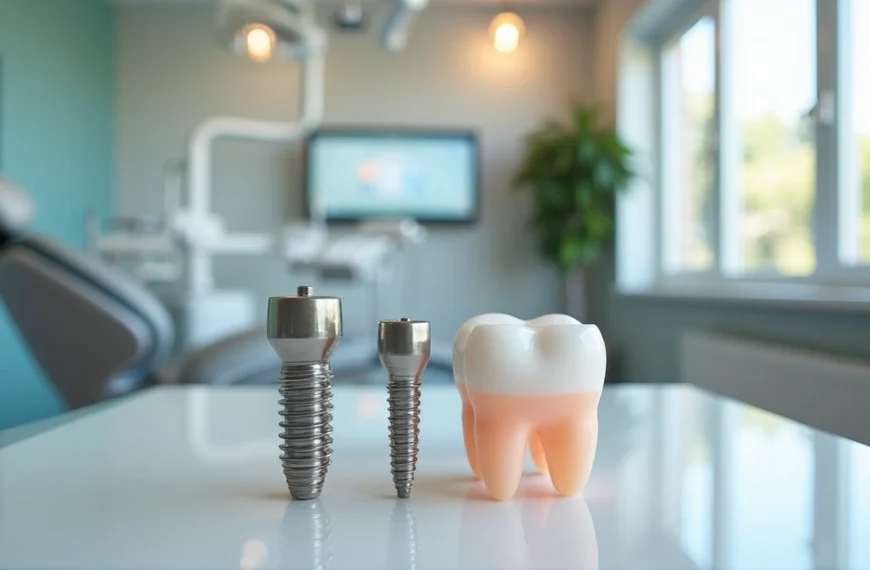Dental plans for seniors don’t cover the full cost of dentures, even though they’re vital for oral health. Recent data shows dental insurance policies only pay up to 50% of denture costs. Seniors must pay the rest themselves. The cost of full traditional dentures in the United States ranges from $1,000 to $3,000.
These costs create a huge financial strain for many seniors. One in five adults over 65 have lost all their teeth. This makes dentures a necessity, not just an option. The situation gets tougher because 47% of Medicare beneficiaries (24 million people) don’t have any dental coverage in their plans. Seniors who buy dental insurance pay around $53 each month. Most dental insurance plans have yearly coverage limits. About 63% of PPO plans set their maximum coverage at $1,500 or higher. Retirees need to understand their options for dental insurance, especially when they need coverage for dentures.
Understanding Dental Insurance for Seniors
Image Source: Blake Insurance Group LLC
Unlike Medicare, which provides minimal dental coverage, specialized senior dental plans are a great way to get services designed for aging teeth and gums. Dental coverage remains a critical need since 65% of Medicare beneficiaries don’t have it.
What dental plans for seniors usually include
Senior dental plans cover three main categories of care. These plans typically include preventive services like regular cleanings, routine exams, and X-rays. They also cover simple restorative procedures such as fillings, extractions, and non-routine X-rays. Major restorative care that covers bridges, crowns, and dentures might also be included.
These plans work best when you visit in-network dentists who offer optimal rates. Some plans allow out-of-network visits at higher costs. Seniors who need dentures should look for Medicare Advantage plans that specifically cover them.
How coverage tiers work: preventive, basic, and major
Senior dental insurance uses a three-tier structure called the “100-80-50” model:
- 100% coverage for preventive care (cleanings, exams, X-rays)
- 80% coverage for basic procedures (fillings, extractions, gum disease treatment)
- 50% coverage for major procedures (crowns, bridges, dentures)
This tiered system helps manage costs and puts prevention first. Most plans have annual maximums—63% of PPO plans set limits at $1,500 or higher. You must pay all remaining costs out-of-pocket after reaching this cap.
Where dentures fall in the coverage structure
Most dental insurance plans classify dentures as major restorative care. You’ll typically get 50% coverage after meeting your deductible. Dentures cost between $1,050 and $2,500, so even with partial coverage, seniors might face much out-of-pocket expenses.
Many individual policies and new employer plans require waiting periods of 6-12 months before covering major procedures like dentures. Seniors should plan ahead and get coverage well before they need dentures.
What Insurance Actually Covers for Dentures in 2025
Senior dental plans come with specific rules and limits for denture coverage that seniors need to know about. Most seniors searching for dental coverage for dentures in 2025 will see similar patterns in different insurance options.
Typical coverage percentage for dentures
Dental insurance companies label dentures as “major” dental services. Plans usually cover between 50% and 70% of the “usual, customary, and reasonable” denture costs after meeting deductibles. Medicare Advantage plans that include dentures might charge no copayment, up to $500, or ask for coinsurance between 50% and 70%. Patients must pay the remaining balance, which can be quite expensive.
Waiting periods and annual maximums
Standalone dental insurance policies make you wait before they cover major procedures like dentures. The waiting time runs from 6-12 months for major services. Dental plans also set yearly limits on what they’ll pay. These limits typically range from $1,000 to $2,000. Patients must cover all costs beyond this limit until the next benefit year starts. Some discount dental plans and Medicare Advantage options offer plans without waiting periods.
Coverage differences between private plans and Medicare Advantage
Regular Medicare doesn’t cover dentures, leaving beneficiaries to pay the full cost. Medicare Advantage plans have stepped up, with 97% now offering some form of dental coverage as of 2024. These plans might cover dentures, but coverage varies a lot between providers. Private standalone dental plans give more reliable denture coverage but stick to yearly maximums and waiting periods.
How often dentures are covered or replaced
Insurance companies limit how often they’ll replace dentures. You can expect replacement coverage every five to ten years. Many plans state clearly that they’ll pay for dentures (partial and full) just once every 5 years. New denture adjustments aren’t usually covered for the first six months. Patients who need replacements sooner can appeal by showing proof with clinical notes, photos, and x-rays.
Comparing Plan Types: Which One Covers Dentures Best?
Image Source: Insurance
Seniors need to understand which type of senior dental plans provides the best coverage for expensive procedures like dentures. Different plan structures work better for different people based on their needs and priorities.
Dental PPO vs. DHMO vs. Fee-for-Service
Dental PPO plans cost more than DHMOs but give you more flexibility with denture coverage. Seniors can visit dentists outside the network with PPOs, though they’ll pay more. DHMO plans keep premiums low and have specific provider networks. These plans only cover dental services within their network unless there’s an emergency. PPOs usually work better for denture coverage since they include major restorative benefits like dentures with 50% coverage after you meet deductibles. Fee-for-service plans (indemnity plans) let seniors see any dentist they want while the plan covers a percentage of costs. You won’t get discounted network rates with these plans, but you’ll have complete freedom to choose your provider.
Medicare Advantage vs. Standalone dental insurance
About 94% of Medicare Advantage plans included some dental coverage in 2021. Nearly half of these plans cover dentures, and they usually allow replacement once every five years. Standalone dental plans give you more detailed coverage but charge higher premiums. These specialized plans for major restorative care usually include dentures under their “major services” category.
Discount dental plans: pros and cons
Discount dental plans work differently from insurance – they’re membership programs with yearly fees.
Pros:
- Services like dentures don’t have waiting periods
- Your savings have no annual limits
- No deductibles or complex claims to deal with
- You start saving on dental services right away
Cons:
- You pay reduced fees instead of having coverage
- Benefits work only with participating providers
- Major procedures might cost more out of pocket
What to look for in senior citizen dental plans
Seniors should focus on plans that cover “major restorative” benefits when looking for dental insurance for dentures. The average annual maximum of $1,300 might not cover all denture expenses. Plans often need 6-12 months before they cover major procedures. Most plans also limit denture replacements to once every five years.
Cost Breakdown and How to Save on Dentures
Seniors often face a harsh reality when they learn about denture costs. The prices can vary based on type, materials, and customization options. You need to know the actual costs and ways to reduce them before you look into senior dental plans.
Average cost of dentures in 2025
Traditional full dentures (both upper and lower plates) cost about $1,968 on average nationwide. The price range starts at $1,520 and goes up to $3,648. Premium dentures made with better materials and custom features cost $6,514 on average. These prices can go up to $12,438. Partial dentures are budget-friendly options. Resin-based partials cost around $1,738 while metal cast partials run about $2,229. Immediate placement after tooth extraction costs $2,178 on average.
Out-of-pocket costs after insurance
Dental insurance for dentures still leaves you with substantial expenses. Most insurance plans cap yearly coverage at $1,500. A single denture plate typically costs $2,500 or more. Insurance usually covers 50% of the cost, leaving seniors to pay over $1,000 themselves. The costs can be higher if you’ve used some benefits for other dental work that year. You might hit your coverage limit and end up paying the full remaining amount.
Using dental schools or clinics for affordable care
Dental schools provide a great way to get affordable care. Students do the work while faculty members supervise, and costs run about 10% of regular prices. You’ll spend more time at appointments because professors check each step. Community health centers funded by the government offer another option with fees based on your income. Medicare Advantage plans and Medicaid are accepted at many centers, which helps reduce costs further.
Switching plans strategically to maximize coverage
Smart timing of denture procedures across different plan years can double your insurance coverage. Look at specific denture coverage and waiting periods when you compare plans. Some insurance companies like Guardian Direct and Spirit Dental don’t have waiting periods, but their premiums cost more. Discount dental plans are another option. These plans offer 10-60% off at participating dentists with no waiting time.
Conclusion
Making Informed Decisions About Dental Coverage for Dentures
Dental insurance for dentures creates real challenges for seniors. Most insurance plans cover merely 50% of costs, and seniors must pay the rest out of pocket. On top of that, waiting periods stretch from 6-12 months, and annual maximums usually stop at $1,500.
Seniors need to review their options carefully before choosing a dental plan. Personal needs and priorities shape the right choice. Seniors who need dentures right away should look for plans that don’t make them wait. Those with tight budgets might find better deals through discount dental plans or community health centers.
Smart timing helps seniors get the most from their coverage benefits. Planning work across different benefit years can double the available coverage for expensive procedures like dentures. To name just one example, see how scheduling prep work in one year and denture placement in the next year helps avoid maxing out annual limits too fast.
Medicare Advantage plans deserve a close look as they now include dental benefits more often, though coverage quality differs by a lot between providers. Almost half of these plans now include some denture coverage, but they limit replacements to once every five years.
Seniors should know that dental insurance won’t cover all denture costs. These plans work best to reduce costs rather than provide complete coverage. Learning about alternatives like dental schools are a great way to get savings up to 90% compared to private practice rates.
The best strategy combines good research with smart timing. Seniors who know coverage limits, look at many plan options, and find ways to save money can get the dental care they need without breaking the bank. While dental insurance helps cut costs, knowing how to maximize benefits matters just as much when looking for affordable denture options.
FAQs
Q1. What dental coverage does Medicare provide for dentures in 2025? Original Medicare does not cover dentures. However, some Medicare Advantage plans offer dental benefits that may include denture coverage. The extent of coverage varies between plans, so it’s important to carefully review the specifics of each plan.
Q2. Are there options for seniors to obtain free or low-cost dentures? Seniors can explore local health department programs, dental schools, and community health centers for affordable denture options. These resources often provide services at reduced costs or on a sliding scale based on income.
Q3. How much of the cost of dentures does dental insurance typically cover? Most dental insurance plans cover about 50% of the cost of dentures. However, annual maximums, usually around $1,500, can limit the total coverage. Patients are often responsible for significant out-of-pocket expenses.
Q4. How frequently do dental plans allow for denture replacement? Most dental insurance plans limit denture replacement to once every five years. It’s important to check your specific plan details, as coverage frequency can vary between providers.
Q5. What should seniors look for in dental plans that cover dentures? Seniors should prioritize plans that cover major restorative services, have higher annual maximums, shorter waiting periods, and a good network of providers. It’s also beneficial to consider plans with no waiting periods for immediate needs.














![No Win No Fee Lawyers: The Hidden Truth About Settlement Cuts Legal representation through no win no fee lawyers gives clients a way to fight cases without paying anything upfront. Many clients don't know that these services take a big chunk of money after winning the case. Lawyers usually take 25% to 40% of what you win as their contingency fee. The amount lawyers take from settlements can add up fast. A $100,000 settlement means your attorney gets $30,000 if they charge a 30% fee after winning your case. Your solicitor's cut might be £10,000 from a £30,000 compensation award, based on your agreement percentage. This payment model stays pretty much the same for no win no fee lawyers in different places, though percentages can change. This piece breaks down what you need to know about contingency fee deals. You'll learn about standard fee ranges, extra costs beyond the basic fee, and times when this payment setup might not work in your favor. Smart clients should think over these money matters before signing up with a lawyer to make better choices about their legal help. What No-Win No-Fee Really Means Image Source: Express Legal Funding A no-win no-fee arrangement, also called a Conditional Fee Agreement, changes the way people get legal help. This payment approach removes the need to pay legal fees upfront and creates a partnership between clients and their attorneys. How contingency fees work No-win no-fee agreements are based on contingency fees. Lawyers get paid only when they win compensation for their clients. Most lawyers take between 25% and 40% of the final amount, based on how complex the case is and where it's filed. Lawyers take their cut after winning the case. To name just one example, see a case where a lawyer wins £30,000 in compensation with a 33% fee - they would receive £10,000. On top of that, some law firms use sliding scales where they charge less for quick settlements and more if the case goes to trial. The law requires a written agreement before any work starts. This paperwork spells out the lawyer's percentage, what costs you'll need to cover, and other key details. What happens if you lose the case The meaning behind "no-win no-fee" is clear - losing your case means you won't pay your lawyer anything. All the same, you should know about a few money-related details. You won't owe your lawyer when you lose, but some deals might make you pay for court fees, expert witnesses, or other case expenses. The other side could also ask you to pay their legal costs. Many lawyers suggest getting "After Event" insurance to protect their clients. These policies cover any costs if you lose your case, which makes the no-win no-fee setup much safer. Why lawyers offer this model Lawyers want to make legal help available to more people, so they offer these payment plans. This setup helps people who don't have much money take legal action when they have valid claims. The payment structure motivates lawyers to work hard. They only get paid by winning cases, which pushes them to get the best results possible. Lawyers carefully assess each case before taking it on a no-win no-fee basis. They usually accept cases that have a good chance of winning, since they put in lots of time and resources without any guaranteed payment. The Real Cost: How Much Do Lawyers Take from a Settlement Image Source: Greiner Law Corp. The true cost of no-win no-fee legal representation becomes clear once we look at contingency fees. Many clients feel surprised to see a big chunk of their settlement checks going to their attorney's fees. Typical percentage ranges (25%–40%) No win no fee lawyers typically ask for 25% to 40% of the total settlement amount. Personal injury attorneys usually take 33.3% (one-third) of the awarded compensation[101]. Lawyers and clients agree on this percentage before any work starts on the case. Several factors shape the final percentage. Your chances of winning, case complexity, and the work to be done play key roles in determining the attorney's cut. Some areas have laws that cap the maximum contingency fees for specific types of cases. Sliding scale based on case complexity Law firms often use a tiered fee system that changes with the case stage and complexity. This scale rewards quick settlements while paying attorneys fairly if more work becomes needed. The fee might start at 30% if the case settles before lawsuit filing. This number could climb to 35% after filing or reach 40% if the case goes to trial. Law firms often group cases by complexity: 10%-20%: Simple cases with straightforward settlements 25%-35%: Typical personal injury cases 35% and above: Complex cases requiring extensive resources Examples of payout breakdowns These ground examples show how fees affect settlements: A $15,000 settlement with a 33.3% contingency fee.pdf) puts $5,000 in the attorney's pocket, leaving $10,000 for the client. Similarly, from a $100,000 settlement with a 33% fee, the attorney gets $33,000 while the client receives $67,000[102]. Complex cases tell a different story. A $100,000 settlement with a 30% fee plus $5,000 in extra costs leaves $65,000 for the client after all deductions. These fees substantially change the client's final payout. Hidden Costs You Might Not Expect Image Source: Nelson Personal Injury Lawyers Beyond percentage-based fees, clients often feel surprised by extra costs that can reduce their final compensation by a lot. These hidden costs show up in the fine print of no-win no-fee agreements. You should think over these details before signing. Court filing and expert witness fees Legal proceedings come with unavoidable court filing fees. These charges differ by jurisdiction. They usually range from $30 for small claims to several hundred dollars for complex civil lawsuits. Expert witnesses can be expensive, with hourly rates ranging from $150 to $1,000 based on their credentials and testimony complexity. Expert witnesses charge more for court appearances than consultation work because of added pressure and prep time. Clients might still need to pay experts for their prep work even if the case settles before trial. Medical report and investigation costs Medical documentation is a vital part of many legal claims. These costs include fees to release medical records, create specialized reports, and prepare documents. Investigation costs cover evidence gathering, police reports, witness interviews, and other fact-finding work needed to build a strong case. Of course, some firms say they'll cover these expenses upfront, but clients don't completely avoid these costs. When these costs are deducted from your compensation Law firms take these expenses from the settlement amount before they calculate their percentage fee, though each firm handles this differently. Some lawyers subtract these costs after figuring out their contingency fee, which changes how much money clients end up with. Most firms pay case-related costs during the process and get their money back from the settlement. The defendant usually pays most simple legal costs and disbursements in successful cases, but not always everything. Insurance protects clients from costs in unsuccessful claims at many law firms, but this protection isn't guaranteed. Clients should review their agreements carefully since they might still need to pay specific expenses even if they lose their case. When No-Win No-Fee Might Not Be the Best Option Contingency fee arrangements give many people access to justice. However, this payment model doesn't always work in a client's best interests. Knowing these limitations helps clients make better decisions about their legal representation. Cases with unclear liability Lawyer no win no fee arrangements work best in cases where fault is clear. We assessed the probability of success before taking contingency cases. Lawyers might turn down cases if there isn't enough evidence of the other party's negligence or if liability isn't certain. Cases with multiple responsible parties create more challenges. The situation gets complicated fast when several parties share liability. Lawyers are less likely to take these cases on contingency. They need to be confident they can prove the other party's negligence before accepting a case. Low-damage or low-payout claims Small claims often don't work well with the contingency model, even with real injuries. Cases that have minimal injuries or limited financial damages might not bring enough compensation to cover legal costs. The potential settlement needs to be big enough to pay for investigations, witness interviews and court fees. Personal injury lawyers often turn down cases where the "compensation potential" is too small. This doesn't mean the claim isn't valid - it just means the economics don't add up for a contingency arrangement. Situations where hourly billing may be better Hourly billing has clear advantages in certain cases. Clients see exactly what they're paying for - every hour worked and task completed. This model works well for cases that need lots of attention but don't have clear financial outcomes. Complex litigation with opposing parties works better with hourly billing and a retainer fee. Clients have more control over their case and don't feel pressured to settle quickly. Cases that need extensive preparation but have uncertain outcomes fit the hourly model better. Lawyers can spend the time needed without worrying about contingency limits. This approach often leads to better representation, especially for complex legal issues that need special expertise. Conclusion Understanding the Full Picture Before You Sign No-win no-fee arrangements offer legal representation without upfront costs. Of course, this seems attractive at first glance. In spite of that, you need to think about how these agreements can affect your final compensation. Legal fees usually range from 25% to 40% of your settlement - but that's just the start. You'll face more deductions like court filing fees, expert witness costs, and charges for medical documentation. What looks like a "free" service ends up taking a big chunk of your compensation to cover legal expenses. These arrangements work best in specific situations - cases with obvious liability, substantial damages, and solid evidence. If you have a low-value claim or complex liability issues, traditional hourly billing might serve you better. Without doubt, you should ask for clear explanations of all possible costs before signing anything. Read the fine print closely, especially when you have to deal with expenses in unsuccessful cases. Ask to see sample settlement breakdowns that show all deductions. This helps you picture what you might actually take home. Your choice to go with a no-win no-fee arrangement depends on your situation. This model helps if you don't have money to pursue valid claims. But if you have a strong case and enough funds, other fee structures might let you keep more of your compensation. Whatever payment model you choose, knowing exactly how much lawyers take from settlements helps you make better decisions. This knowledge lets you approach legal representation with real expectations and better control over your money. FAQs Q1. What percentage of a settlement do no-win no-fee lawyers typically take? No-win no-fee lawyers typically charge between 25% to 40% of the final settlement amount as their contingency fee. The exact percentage often depends on the complexity of the case and the stage at which it is resolved. Q2. Are there any hidden costs in no-win no-fee arrangements? Yes, there can be additional costs beyond the lawyer's percentage fee. These may include court filing fees, expert witness costs, medical report expenses, and investigation costs. These expenses are usually deducted from the settlement amount before or after the lawyer's fee is calculated. Q3. What happens if I lose my case in a no-win no-fee arrangement? If you lose your case, you generally won't have to pay your lawyer's fees. However, you might still be responsible for certain expenses like court costs or the opposing party's legal fees. Many lawyers offer insurance to protect clients from these potential costs in case of an unsuccessful claim. Q4. When might a no-win no-fee arrangement not be the best option? No-win no-fee arrangements may not be ideal for cases with unclear liability, low-value claims, or complex legal issues requiring extensive preparation. In these situations, traditional hourly billing might be more appropriate and potentially more cost-effective for the client. Q5. Can I negotiate the percentage a lawyer takes from my settlement? Yes, the contingency fee percentage is often negotiable. It's typically agreed upon and formalized in writing before the lawyer begins working on your case. Don't hesitate to discuss the fee structure with your lawyer and ask for a detailed breakdown of potential costs and deductions.](https://consumersweek.com/wp-content/uploads/2025/06/No-Win-No-Fee-Lawyers-The-Hidden-Truth-About-Settlement-Cuts-870x570.webp)

